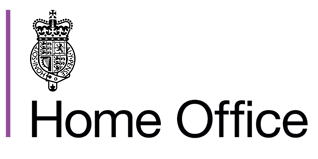PRESS RELEASE : Vienna Mechanism on treatment of prisoners by Russia – Joint Statement by UK, US and Canada [April 2024]
The press release issued by the Foreign Office on 18 April 2024.
UK, US and Canada regret Russia’s lack of response to the Vienna Mechanism of March 2024 on prison conditions and call for immediate humanitarian release of Vladimir Kara-Murza.
Madam Chair,
I am delivering this statement on behalf of the United Kingdom, the United States, and my own country Canada. We align ourselves fully with the statement just made by Denmark on behalf of the participating States who invoked the Vienna Mechanism on 22 March 2024, and would add the following views.
It is evident that Russia continues to completely disregard its international human rights obligations and its OSCE human dimension commitments. Russia’s refusal to respond to the questions posed last under the Vienna Mechanism is yet further evidence of their fear of transparency and accountability.
Russia today is haunted by fear. Ordinary citizens are afraid of exercising their basic human rights. Russia’s rulers are afraid that their fabricated reality is so weak that it will not withstand examination or comment. With self-centered conceit, the Kremlin finds contrary opinions intolerable, and responds to expressions of political opinion with repression.
In an effort to silence dissent, Russian authorities have engaged in the harassment, intimidation, and persecution of civil society members, human rights defenders, journalists, opposition figures, and anyone speaking out against Russia’s war of aggression against Ukraine. This systemic political repression has resulted in many arbitrary and unlawful detentions; subsequently many prisoners, particularly those imprisoned for political reasons, have reportedly been subjected to torture and other mistreatment at the hands of the state.
States are obliged under international law to treat all individuals deprived of their liberty with humanity and respect for their inherent dignity; they must also respect fair trial guarantees. Yet credible reports indicate that political prisoners in Russia face sexual and gender-based violence, threats of sexual abuse, and prolonged punitive detention in isolation cells. They are often deprived of access to adequate medical care, refused prompt access to their lawyers, and are denied contact with family members.
The sudden death of Alexei Navalny in a Russian penal colony, following years of detention in poor conditions which, according to UN experts, amounted to torture and ill-treatment, is tragically emblematic of state repression in Russia.
Our governments also remain deeply concerned about the ongoing detention of Vladimir Kara-Murza, who we spoke of last week in this Council. Russian authorities have callously disregarded Mr Kara-Murza’s declining health, refusing him the urgent medical treatment he needs. His degrading and inhumane prison conditions are clearly designed to inflict further damage to both his physical and mental health. We again call on the Russian authorities to release him immediately on humanitarian grounds.
We reiterate our call to the Russian authorities to immediately and unconditionally release all those unjustly imprisoned in Russia on political grounds, including: Oleg Orlov, leader of the Nobel Prize winning human rights organization Memorial who proudly declared that he opposed the war; journalist Maria Ponomarenko, for telling the truth about the conduct of the Russian Army; Alexandra Skochilenko, who received a seven-year sentence for posting anti-war stickers in a food store; Evgenia Berkovich for anti-war poetry; activists in the Navalny anti-corruption foundation Lilia Chaysheva, Ksenia Fadeeva, Vadim Ostanin, Alina Olekhnovich, and Ivan Trofimov; and also, IIgor Baryshnikov, Alexey Gorinov, and Ilya Yashin. And we reiterate our call for the immediate and unconditional release of the three OSCE employees detained by Russia: Vadym Golda, Maxim Petrov and Dmytro Shabanov.
These are just a few examples from a very long list. In addition to administrative punishment, foreign agent designations and other restrictions, human rights organization OVD-INFO calculates that there have been 1447 politically motivated criminal prosecutions in Russia since 2022.
We call on Russia to respond to the Vienna Mechanism and to take due account of the recommendations made by the Moscow Mechanism Rapporteur in 2022 and the UN Special Rapporteur on Human Rights in Russia in 2023. The latter expressly called for Russia to ensure an independent and impartial investigation of “all allegations of torture and ill-treatment in custody” and to prosecute and hold accountable those responsible.
The Kremlin’s utter disregard for its human rights obligations and its OSCE commitments is a legitimate point of discussion for this Council. We call upon the Russian government to respect its human rights obligations, to allow dissenting voices to express their views without fear of persecution, to end the use of arbitrary and unlawful detention, and to ensure that all those detained are treated with dignity and have access to adequate medical care.
Thank you.


